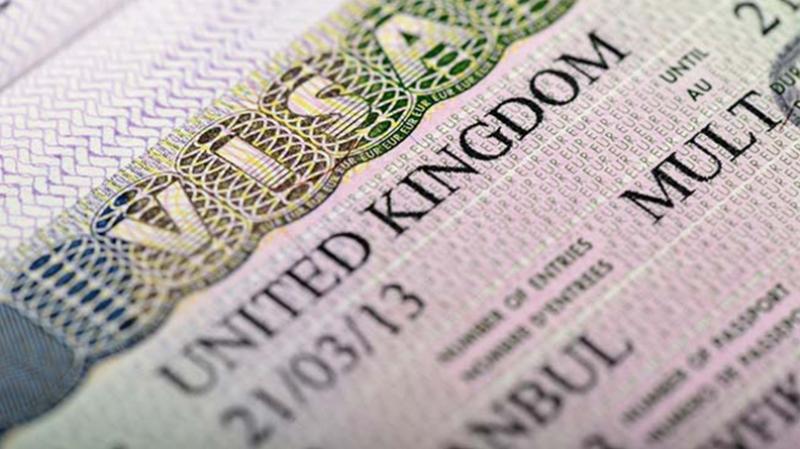 The UK government has tabled changes to its immigration policy in Parliament which includes a review of its strict visa quotas available to professionals from countries like Bangladesh.
The UK government has tabled changes to its immigration policy in Parliament which includes a review of its strict visa quotas available to professionals from countries like Bangladesh.
As part of the immigration changes, the government said it would ask the independent Migration Advisory Committee (MAC) to review the composition of the Shortage Occupation List. This is likely to further ease up the visa regime for businesses to be able to bring in professionals like chefs from countries like Bangladesh to work in the UK. The Bangladeshi-owned restaurant sector in the UK is among those expected to benefit from the easing up of the government’s annual cap on Tier 2 visas, a move welcomed by the industry.
“This is fantastic news. We would urge the committee to look into our long-standing campaign around the severe skill shortages being faced by the curry industry,” said Yawar Khan, founder-chair of the Asian Catering Federation and Asian Curry Awards.
“The Asian restaurant industry has been struggling to recruit staff locally and is in desperate need for a relaxation of visa rules to be able to bring in qualified restaurant staff from not only Bangladesh, but also other Asian countries,” said Khan, who moved to the UK from Bangladesh in 1973.
According to an analysis, nearly 50 per cent of all curry restaurants in Britain – around 6,000 – are expected to permanently shut down within 10 years due to a lack of qualified staff. The hope now is a review of the Shortage Occupation List will address the UK’s £3.6-billion curry industry’s shortages alongside other struggling sectors.
In an announcement in the lead up to the parliamentary statement on Friday, the British government had already announced that doctors and nurses from countries outside the European Union (EU) would be exempt from its Tier 2 (General) visa limit to address particular shortages and pressures facing the state-funded National Health Service (NHS). With doctors and nurses exempt from the current monthly quota of 1,600, the Tier 2 category is expected to free up places for other key professions.
“Businesses will welcome these reforms as a good first move. International skills and talent are a core foundation of the Global Britain employers want to help build,” said Matthew Fell, Chief UK Policy Director for the Confederation of British Industry.
“A successful migration system should focus on people’s contribution to the UK economy and society, not numbers. Until our immigration system is reformed to reflect this, including scrapping the net migration target, businesses will continue to struggle to get the people they need to create jobs and growth,” he said.
A number of further changes to the UK’s visa routes include opening up the exceptional talent visa to include leading fashion designers. They will have their application assessed by the British Fashion Council under the endorsement remit of Arts Council England (ACE), one of the existing five endorsing bodies on that route.
“The changes show that we are able to adapt to meet the demands of our frontline services and ensure we are able to attract people who can bring real benefits to our creative industries,” said UK immigration minister Caroline Nokes.
The Tier 2 visa route, which has had an annual cap of 20,700 since 2011, has in recent months seen the number of applications exceed the monthly allocation of available places. This has been driven, in large part, by demand from the NHS, which accounts for around 40 per cent of all Tier 2 places.
“I recognise the pressures faced by the NHS and other sectors in recent months. Doctors and nurses play a vital role in society and at this time we need more in the UK. That is why I have reviewed our skilled worker visa route. This is about finding a solution to increased demand and to support our essential national services,” said UK home secretary Sajid Javid.
 International
International
30997 hour(s) 57 minute(s) ago ;
Morning 08:51 ; Tuesday ; Apr 30, 2024
Curry industry welcomes decision to review visa quotas in UK
Send
Aditi Khanna, London
Published : 19:37, Jun 18, 2018 | Updated : 19:37, Jun 18, 2018
Published : 19:37, Jun 18, 2018 | Updated : 19:37, Jun 18, 2018
0 ...0 ...
/pdn/ssz/
Topics: Top Stories
- KOICA donates medical supplies to BSMMU
- 5 more flights to take back British nationals to London
- Covid19: Rajarbagh, Mohammadpur worst affected
- Momen joins UN solidarity song over COVID-19 combat
- Covid-19: OIC to hold special meeting
- WFP begins food distribution in Cox’s Bazar
- WFP begins food distribution in Cox’s Bazar
- 290 return home to Australia
- Third charter flight for US citizens to return home
- Dhaka proposes to postpone D8 Summit
Unauthorized use of news, image, information, etc published by Bangla Tribune is punishable by copyright law. Appropriate legal steps will be taken by the management against any person or body that infringes those laws.
Bangla Tribune is one of the most revered online newspapers in Bangladesh, due to its reputation of neutral coverage and incisive analysis.
F R Tower, 8/C Panthapath, Shukrabad, Dhaka-1207 | Phone: 58151324; 58151326, Fax: 58151329 | Mob: 01730794527, 01730794528


